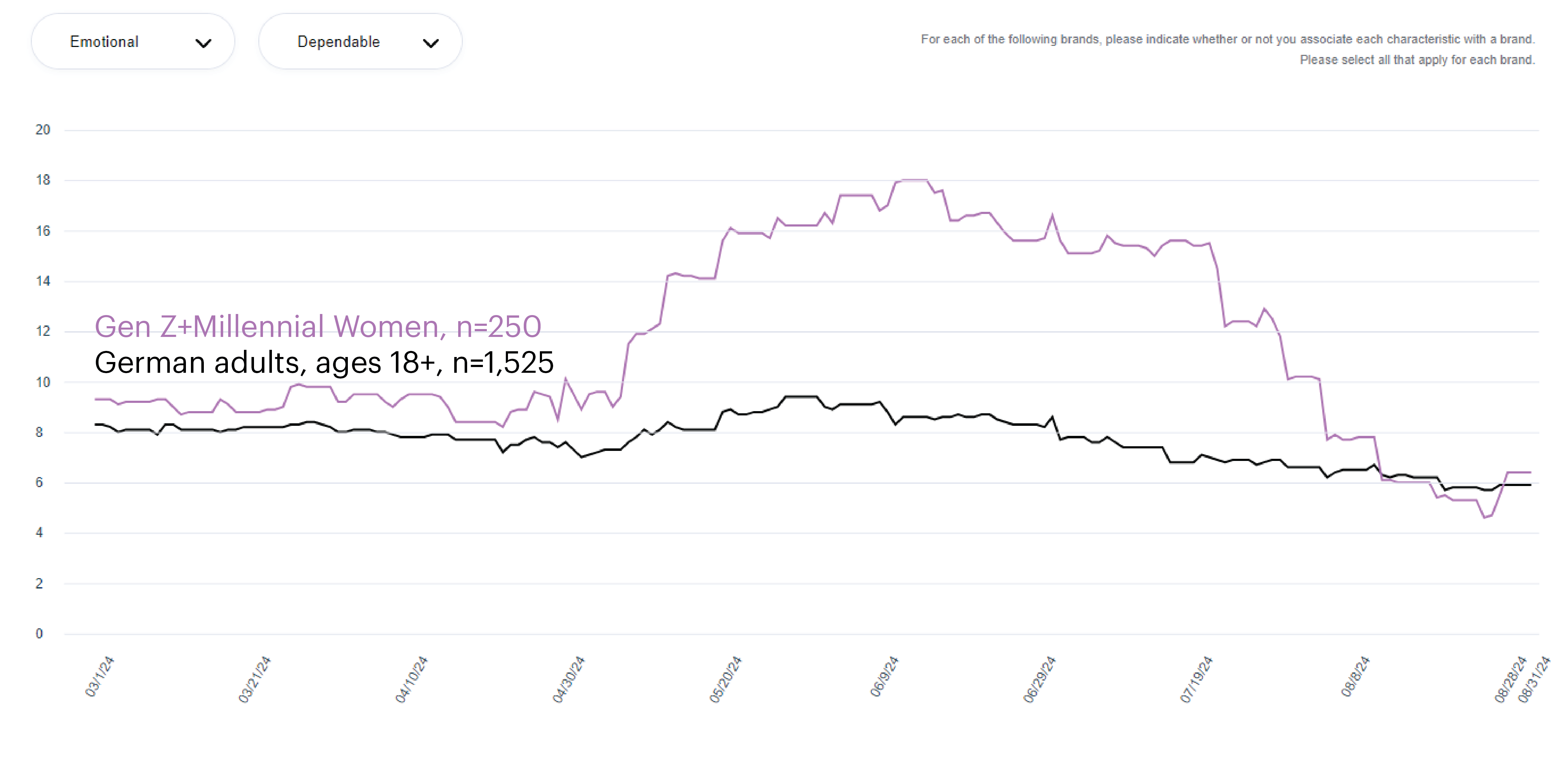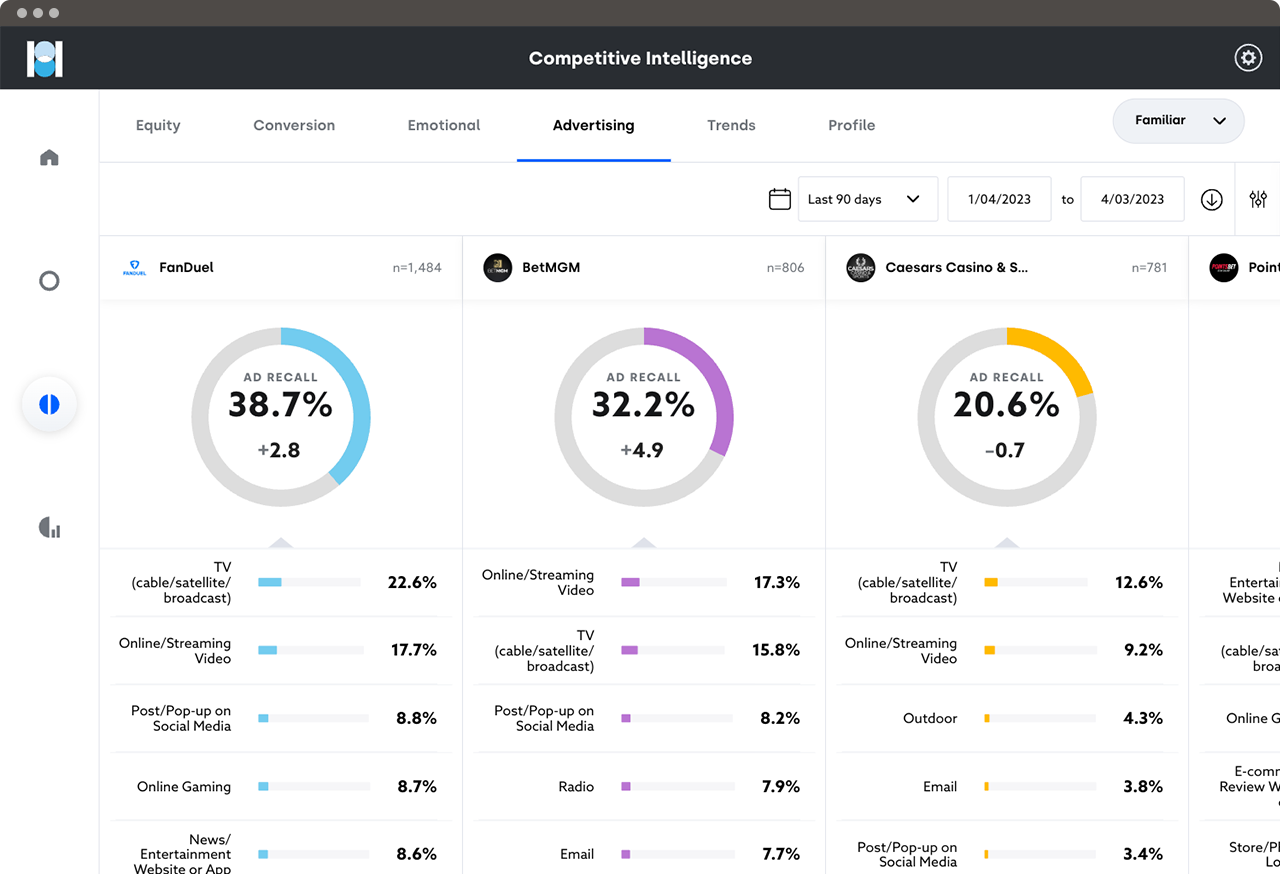Brief • 2 min Read

News of first-time profitability can attract the attention of many onlookers, whether wanted or unwanted. Unfortunately for Vinted, an online marketplace for new and used fashion items, this accomplishment came during an era of extensive scrutiny over data-privacy and usage, particularly for successful brands.
In Europe, companies are held to a strict data privacy standard outlined in the General Data Protection Regulation (GDPR), the self-proclaimed “toughest privacy and security law in the world.” Although drafted in the EU, it could require any organization to comply with its regulations if the company collects data from EU consumers.
We used data from QuestBrand by The Harris Poll to examine how two major events – achieving first-time profitability and suffering allegations of unfair data practices – impacted Vinted’s brand image among German consumers. We focused on data from young (Gen Z and Millennial) women, Vinted’s target consumer.
Vinted Leads the Second-Hand Fashion Marketplace in Europe
Vinted has recently emerged as the leading second-hand fashion marketplace in Europe in terms of size and reach. This can be attributed not only to their continuous efforts to increase their reach and improve user experience, but also their commitment to promoting sustainable business practices, including their new shipping brand Vinted Go.
Consumers Positively React to Vinted’s Profitability
In early April, Vinted announced that it had become profitable for the first time, delivering impressive revenue growth compared to the previous year.
This announcement resulted in a significant shift in how young German women describe Vinted. QuestBrand data shows a strong surge in the percentage of young women who describe Vinted as “Dependable” (shown in Figure 1 below).
German Gen Z and Millennial Women who Describe Vinted as “Dependable” – 12 Week Trended Average

QuestBrand. 3/1/24-8/31/24. Base: General population of German adults, n=1,525. Base: German Millennial and Gen Z women, n=250.
Unexpected Fines Harm Vinted’s Brand Image
Despite the positive press gained from a year of unprecedented financial performance, the National Data Protection Authority for Lithuania issued €2.38 M in fines against Vinted shortly after, negatively impacting brand sentiment.
This ruling was delivered in the beginning of July, around two months after Vinted’s financial report. The basis for these fines comprised violations of lawfulness, fairness, and transparency under the EU’s General Data Protection Regulation law.
Specifically, the investigation conducted by the VDAI found that Vinted was using a method called ‘shadow blocking’ which blocks a user’s content from being seen online without notifying the user. Additionally, the VDAI was made aware of several complaints from the Netherlands, Germany, Poland, and Spain about Vinted’s lack of transparency over how it uses personal user data.
Descriptors Young German Women Apply to the Vinted Brand – Pre vs Post Reported Fines

QuestBrand. Base: German Millennial and Gen Z women. Pre: 4/1/24-6/17/24, n=97. Post: 6/18/24-8/31/24, n=116.
Looking at QuestBrand data, we can see that Vinted’s lack of transparency negatively impacted how consumers describe the online marketplace.
Specifically, Figure 2 compares how young German women described the Vinted brand before and after the reported fines. After suffering the public fines, young women less frequently described Vinted as a “Good Value” (-13.8), “Smart” (-13.7), “Fun” (-13.3), “Dependable” (-11.1), or “Innovative” (-8.9).
These significant drops in positive brand sentiment indicate that Vinted must reconnect with these consumers and win back their trust.
Subscribe for more Insights
Subscribe to our newsletter for the latest trends in business, politics, culture, and more.

Related Content








